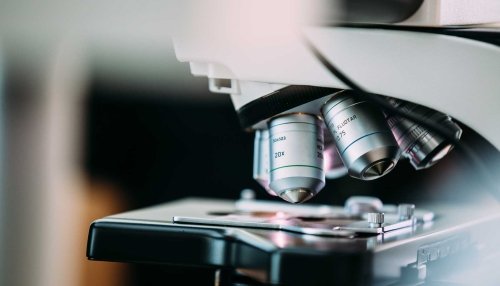Clinic Hours:
Monday – Friday: 8:30 a.m. – 5:00 p.m.
Appointments & Questions: Call 623-806-7540
Location: 5725 West Utopia Road, Glendale, AZ 85308 | Directions
General Inquiries: Use our Contact Us form
Our Services
The Diagnostic Pathology Center (DPC), part of Midwestern University’s Animal Health Institute, is staffed by American College of Veterinary Pathologists (ACVP) certified anatomic pathologists and American Society for Clinical Pathology (ASCP) licensed necropsy and histology technicians. These professionals offer comprehensive diagnostic services including postmortem examinations (necropsy), histopathology, biopsy evaluation, cytology, and diagnostic immunohistochemistry to veterinarians working in private large and small animal practices, zoo and wildlife organizations, legal investigations, and other veterinary or animal-related fields.
Submit an Animal or Sample
Would you like to add additional information, documents, or photos to a submission already in progress?
This is a great way for submitting clinics, legal agencies, and animal owners to provide additional information or records that may not have been available at the time of submission.
Add Information to Previous Submission
If you are having trouble with our online submission, please contact us at 623-806-7540.
Explore Frequently Asked Questions
- What should I do if my pet has suddenly died and I want a necropsy?
- When is a necropsy (i.e. postmortem exam, autopsy) beneficial?
- Can I freeze the body before a necropsy?
- How do I get my pet to the Diagnostic Pathology Center?
- Can I donate my animal?
- What does the necropsy include?
- How long does it take to get a report?
- Who performs the necropsy?
- Can I discuss results with a veterinary pathologist?
- Can I pick-up my pet’s body after the necropsy?
FAQs
Examination and testing of deceased animals provides animal owners and veterinarians with not only an understanding of the cause of death, but also identification of pathogens and/or management problems that may be of particular significance in herd-health and multi-pet households, and may potentially have implications in the health of humans sharing the same environment.
Reasons to necropsy an animal:
- Suspicious or unexpected death
- Legal or criminal investigations
- Confirmation of diagnosis
- Identification of disease
- Inform treatment of disease in a herd
- Limit future losses
- Contribute the veterinary medical knowledge
- Improve understanding of disease
- Assessment of treatment efficacy
- If circumstances prevent immediate transportation and refrigeration is unavailable, carcasses can be frozen. Frozen carcasses may take a long time to thaw and greatly increase turnaround time. Freezing also kills many bacteria, often preventing accurate bacterial culture, and creates serious tissue artifacts on histopathology.
- If there will be a significant delay between death and the postmortem examination (24 hours or more at room temperature) and the body cannot be maintained in the refrigerated state, freezing is better than the decomposition which will occur in an unrefrigerated body.
All bodies that are being dropped off at the DPC will need to be clearly labeled, and have a submission form completed by a veterinarian prior to drop off.
- Pet owners and veterinary staff are welcome to deliver the body directly to the Diagnostic Pathology Center.
- For animals under 150 lbs: If you are in the greater Phoenix area, we employ a courier service that will pick up the animal and deliver it to the Diagnostic Pathology Center. There is an additional charge for courier service.
Typically final necropsy reports summarizing gross and histopathological findings are sent to the submitter in 4-6 weeks from the date of the examination. This timeframe can be delayed by several factors, including the need to thaw bodies that are submitted frozen, University holidays, and requests for additional testing. The turnaround time for biopsy reports is typically 3-5 business days from the date a sample is received. This timeframe may also be affected by the types of delays listed above.
- We encourage owners to discuss results with their veterinarian, who usually has familiarity with the animal and/or its management, environment, and herd situation. Your veterinarian is better equipped to advise any management changes or treatment of remaining animals.
- Our veterinary pathologists are available to discuss results with referring veterinarians at any time.
Hours and Location
We are open Monday through Friday, 8:30 a.m. - 5:00 p.m.

